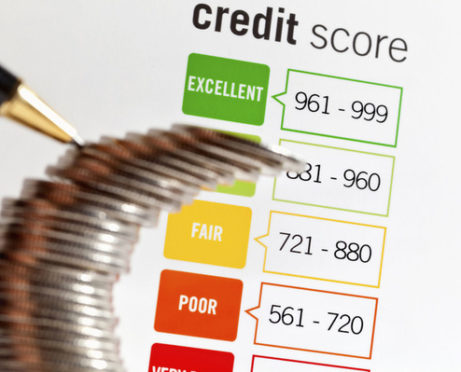
Financial awareness counselors are there to help you not just in school, but in life.
If you’re on the verge of taking out federal student loans, you’ll have to complete mandatory entrance counseling. This requirement is for students and parents who already know what school they’re going to and roughly how much they’ll need to borrow.
But what if you’re just thinking about borrowing? Or you already have student loans and want more information on how they fit into your financial plan for the future?
Financial awareness counseling is the federal government’s answer. It’s an all-purpose program that blends information on federal student loans with advice on budgeting, credit, and even retirement savings.
Start Managing Your Finances — Download This Personal Finance App >>
Some of the same material is covered in mandatory entrance counseling, but if you're not ready to take out student loans yet, or just thinking about the place they might have in your life, this separate program is for you.
 Who Is This Counseling For?
Who Is This Counseling For?
Whether you’re a high school student, in college, contemplating graduate school, or just a person who has income and expenses, this is a one-size-fits-all option.
According to The Office of the Department of Education, “Anyone who is currently paying for or planning to pay for higher education,” can benefit from financial awareness counseling. Yes, that’s broad. But it’s also true.
At the beginning of counseling, you have the opportunity to request that a certificate of completion be sent to your school. You can also decline to have that done and complete the program just for your own information.
Because it’s not tied to a specific school you plan to attend, it’s the most broadly applicable of the Department of Education’s counseling tools.
And while financial counseling is a huge benefit to you or your school-age children, before they get there it's helpful to teach financial well-being from an early age.
The best thing to do to make sure your child is on the right path is to get them involved with financing early on.
Teaching Basic Budgeting Principles
Anyone who has talked to a lot of student borrowers knows that they make the same mistakes again and again. Federal loans are usually given out in a lump sum at the beginning of each semester.
This means a lot of students overspend during September and have nothing left for essentials like food by December.
Get Real-Time Spend Notifications — Try it Free >>
Others succumb to temptation and use the extra cash to book a trip to Florida instead of paying down their loans early. Financial awareness counseling tries to help students avoid these kinds of mistakes.
- It helps potential borrowers set up a monthly budget with real numbers. For example, say you’re going to borrow $10,000 to cover living expenses for the fall semester. Counseling can help you determine how much of that you’ll need to set aside monthly for rent, insurance, and transportation.
- It reminds students to use student loans for their needs rather than their wants. Rent, food, and bus passes? Yes! Fancy cars and clothes? No!
As a benefit of better budgeting, you can borrow less in student loan money — and have less to repay once you graduate. (By the way, if you accidentally take out loans for more money than you need, you can start repaying them when while you’re still in school.)
Save Simply and With Ease Toward Your Financial Goals >>
Counseling for Your Whole Financial Life
Financial awareness counseling covers a lot of student loan and scholarship basics, including:
- The types of federal student loans available
- The limits that apply to them
- How to repay them, even if you’re having cash flow problems
- Ways to minimize borrowing, including part-time work
- Suggestions for finding grants and scholarships, especially if you are or were in the military
What You'll Learn From Financial Counseling
It is important to realize that your financial life is made up of more than paying for college. This counseling spreads a broader net, giving you suggestions about maintaining healthy finances overall. If you complete the program, you’ll learn:
- How to set specific, realistic short and long-term financial goals, from repaying your student loan interest while you’re still in school to retirement
- How to establish an emergency savings fund and why you should
- How to establish and protect your credit rating
- How to protect yourself from identity theft
- How not to overspend on credit cards
- How to search for and understand tax deductions and tax credits
Build an Emergency Savings Fund With a Money Market Account — Get Started >>
My favorite part of financial awareness counseling discusses paycheck withholding. Even though I’d had taxes withheld from part-time job earnings, I was really surprised when I got my first full-time paycheck and realized how much I would actually take home.
The counseling tool takes your annual income (actual or projected) and does a rough calculation of how much will be withheld. Knowing that enables much better budgeting and planning.
Final Thoughts
If you’re not a financial expert — and let’s face it, most of us aren’t — federal financial awareness counseling will get you pretty far along the road of a successful financial life.
Save Without Ever Lifting a Finger — Learn More >>
You can use it to play around with your numbers and see what happens if you increase your income, increase or decrease debt payments, move to a more expensive apartment, and more.
Making a more secure future for yourself starts with awareness of your current position, and this tool will open your eyes fast.










